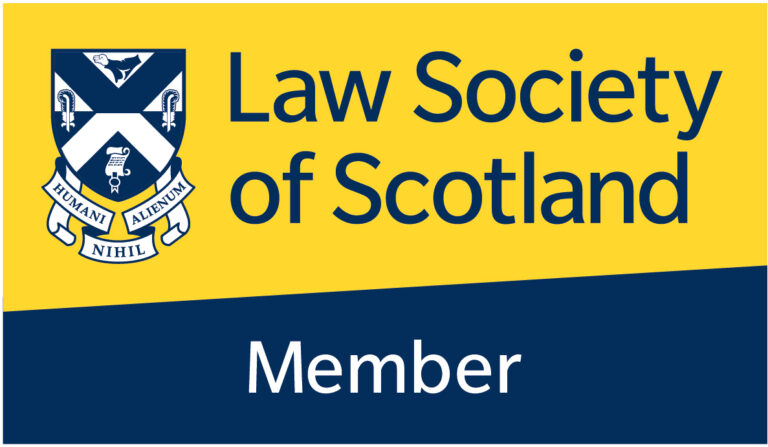Power of Attorney Solicitors Edinburgh
What is a Power of Attorney?
When you grant a Power of Attorney to someone you give them the authority to make decisions for you, perhaps because you are unable to look after yourself or simply because it is convenient to rely on their assistance for a while.
Granting a Power of Attorney is a way of planning ahead to ensure that your affairs can be looked after by people you have chosen. Attorneys must act only in your best interests and they must take account of the Code of Practice published by the Office of the Public Guardian, which oversees attorneys and has the power to investigate should there be any concerns.
A Power of Attorney is designed to assist during your lifetime; after your death your Will lays out what should happen to your estate.
If you wish to put in place a Power of Attorney in Edinburgh or Scotland or if you wish to find out more about how to apply for a Power of Attorney contact Quill Legal, Power of Attorney Lawyers in Edinburgh and we will be happy to assist you.
We are Power of Attorney Solicitors in Edinburgh but also in surrounding towns from Bonnyrigg to Broxburn and from Dalmeny to Danderhall and further afield.
Why you might need a Power of Attorney
None of us know what is round the corner for us or for our families so it is sensible to plan ahead. Making someone Power of Attorney provides security and peace of mind and is not just for the elderly; everyone can benefit.
It allows a trusted friend or family member to manage our affairs when we are no longer able to, perhaps because of dementia, a mental disorder or an accident and can also be useful for instance if we are out of the country temporarily and a document requires our signature.
You can read below about the different types of grant and Quill Legal will be happy to advise you how to arrange a Power of Attorney.
Types of Power of Attorney
Simple or General Power of Attorney
The most simple form of Power of Attorney is one drawn up for a particular purpose, such as signing a document on your behalf when you are absent abroad or incapacitated for a short while. It will generally contain an expiry date and will not be registered with the Office of the Public Guardian.
Welfare Power of Attorney
This provides your attorney with the authority to make decisions relating to your care such as where you are to live, what you are to wear and your treatment if you are ill. The powers are of a very personal nature and can only be exercised when a doctor has certified that you are no longer able to make such decisions for yourself.
Continuing Power of Attorney
This type of grant authorises the attorney to make decisions relating generally to financial matters when you can no longer manage them yourself, either because of illness or an accident or simply due to advanced age.
The most common way of proceeding is to grant a combined Continuing and Welfare Power of Attorney, when both types of powers are granted. We advise all our clients to have the document registered after it has been signed. Generally the financial powers will be made available immediately but we can discuss with you your options on activating Powers of Attorney in Scotland and help you to make the right decision for your particular circumstances.
How to set up Power of Attorney
The Office of the Public Guardian in Falkirk which oversees attorneys and which keeps a register of Powers of Attorney suggests that those who wish to grant one should ask their solicitor for legal advice on what they need to do for Power of Attorney. The Office of the Public Guardian cannot itself give you legal advice. As a Power of Attorney lawyer in Edinburgh Kay at Quill Legal would be happy to advise you and to help you decide how you wish to proceed. Call us for a preliminary discussion.
You will need to decide who you want to appoint as your attorney or attorneys and what powers they are to have. You can choose one or more attorneys to act on their own or jointly; it is wise to appoint a substitute attorney in case the principal attorney is unable to act should the need arise.
Once the grant is signed by you, a certificate requires to be completed by a solicitor, advocate or doctor and Kay at Quill Legal can provide that service as well as arrange for the document to be registered.
You may wish to have authority to act on behalf of an elderly relative and wonder how do I get Power of Attorney organised. It is up to the person who needs your assistance to grant that authority; you would be unable to act until that has been attended to and Quill Legal are able to assist you with that.
What is the cost to get a Power of Attorney?
Our prices are clear and fixed. Our fees cover taking your instructions, drafting an appropriate Power of Attorney for your approval, preparing the consent forms for signature by your attorneys, arranging for you to sign the Power of Attorney and signing the certificate before lodging the document with the Office of the Public Guardian for registration.
If you have any questions about Powers of Attorney in Scotland or about our fees please call Quill Legal today or complete our online contact form.
FAQs
A Will regulates what happens after your death. In contrast a Power of Attorney is designed to assist with your affairs during your lifetime but at a time when you may be unable to manage everything by yourself. The two documents are entirely different although an Attorney may also be appointed as an Executor under your Will.
Unfortunately sometimes accidents happen and people can suddenly become ill and unable to look after themselves. Granting a Power of Attorney is an insurance policy and provides security. If no attorney has been appointed and someone is unable to manage their own affairs it may be necessary to have a guardian appointed by the court. This is a costly and lengthy process which Kay at Quill Legal can help you to avoid. Contact Kay by telephoning : 0131 564 1044
No. Granting powers to someone does not mean that you are no longer able to act for yourself. The welfare powers only come into effect when a doctor certifies that you are unable to make decisions for yourself. The continuing or financial powers are available to be used only when necessary or when you ask for them to be used by your attorney.
No. Attorneys must always act in the best interests of the granter and in a way which least restricts that person’s freedom to act on their own behalf. The granter’s wishes must be taken into account by the attorney, who must keep records of the way in which any funds are being used.
Attorneys have to abide by a Code of Conduct issued by the Office of the Public Guardian. That Office can investigate any case where there are concerns about the attorney’s actings. If you wish to challenge the exercise of continuing powers by an attorney you should contact the Office of the Public Guardian.
No. A spouse may have limited powers but for instance would be unable to sign a deed upon the sale of a property in the name of the incapacitated spouse. Banks and other financial bodies will refuse to release funds unless they are held in joint accounts. This can cause a great deal of distress but can be avoided by planning ahead and granting a Power of Attorney.
Attorneys have to be people that you trust. They are appointed in a legal document known as a Power of Attorney which must be signed in front of a witness and attached to which there is a certificate. This needs to be signed by a doctor or a solicitor, certifying that you know what you are doing and are content to authorise others to act on your behalf should the need arise.
Such packs may not offer you the most appropriate documentation for your circumstances or be drafted properly. Quill Legal will discuss your particular situation with you and advise you on the best options for you. In addition you need to use the services of a solicitor or doctor to sign the certificate which forms part of the paperwork.
Yes, it is possible to appoint multiple attorneys. Often they are appointed to act jointly, which means that they must all agree on each action that is taken and no one attorney can simply take decisions alone. Attorneys may also be appointed to act jointly or each of them alone independently of each other. We can discuss the various options with you and help you to decide what is the best choice for you.
Yes, you can revoke the grant altogether and make a new attorney appointment; the document will require to be registered in the same way as the earlier grant. It is also important to keep the Office of the Public Guardian up to date with any address changes.
Why choose us as your POA Solicitors?
Professional, reliable and flexible
Our aim is to impress. We want to ensure that you are confident that we understand your needs, that we know the relevant law, that we will apply it to your situation and that you can rely on us.
Accessible prices
Our fees are indicated on this website. We have a transparent approach to feeing and want you to be clear about the cost of our services. Wherever possible we will offer you a fixed fee after a preliminary discussion.
Support for the local community
We participated in the charity Will writing initiative offered by Will Aid in 2019 and 2020 and were proud to sponsor some of the charitable work carried out by the Salvation Army Gorgie Edinburgh. We are planning to support other charities.
Committed to sustainability
We care for the environment by using very little paper and travelling by public transport and we are looking for other ways to reduce our environmental impact.
Contact us today
We will be happy to answer your questions.

Meet your Solicitor, Kay Blaikie
Get in touch with me when you need reliable legal advice on any aspect of Executries, Wills, Powers of Attorney and Notarial services.
Latest client reviews
Kay was very professional and the process was very straight forward. Kay was very good at guiding me through the process, as I was new to the service. They were very kind, friendly and understanding.
When I went to drop off my documents to the office, the staff were very helpful and welcoming.
I would highly recommend Quill Legal should you require notarial services.
Contact us today
We will be happy to answer your questions.
Other services you may need






